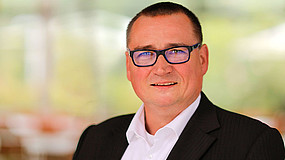Prof. Knoll and Prof. Heese, who are responsible for the course, talk about the new nursing course.

Author: Johanna Steuber
The new "Nursing" degree course is to be offered at the HSZG from the winter semester 2022. Here comes
Nursing staff are currently more in demand than ever. A career in this field is seen as a safe bet with good prospects for the future. This is of course one of the reasons why young people have already expressed great interest in the new nursing degree course at the HSZG. However, one of the most frequently asked questions about nursing is often: Why study nursing? Won't I be better prepared for practical work by training?
Prof. Martin Knoll and Prof. Renate Heese both come from a practical background and know the various areas in which you can work as a nurse from their own experience. "It's a myth that a degree course per se provides less practical experience than training," clarifies Prof. Knoll. The Nursing Professions Act stipulates the necessary practical component for all training paths. This is the only way to ensure that the state examination in nursing can be followed by practical work.
Prof. Heese adds to her colleague:
"This degree course is also about providing students with comprehensive scientific know-how that enables them to think outside the box."
By imparting sound theoretical knowledge, graduates should be able to understand structural interrelationships after completing their studies and thus be able to develop creative solutions for new challenges themselves. For Prof. Knoll, it was precisely these skills that were decisive in his decision to study nursing after his hospital training. According to the founding professor, it is essential to be able to provide well thought-out reasons for your actions, especially in professions where you have so much responsibility for others.
Another important point that makes the course attractive is the broad field of activity that it opens up, emphasized Prof. Knoll. Of course, it is possible to work in nursing after completing a Bachelor's degree, although the areas of employment here already go far beyond working in a hospital - it is also possible to work independently, for example in home care. However, it is also possible to specialize through various Master's degree courses and then pursue an academic career at a university. The founding professor added that the degree also qualifies graduates to work in administrative and organizational areas, e.g. in redesigning care structures in general or improving the care situation in rural areas. According to those responsible, the course places great emphasis on interdisciplinarity, e.g. through modules in business administration and management or psychology and sociology. Prof. Heese also added that by aligning the degree with European standards, it is easily possible to continue both one's practical work and university career in other European countries.

In order to optimally prepare students for their future careers, the course provides for several months of practical experience in various areas of nursing (acute and long-term care, outpatient care or home nursing, retirement homes, pediatrics, psychiatry, etc.). A total of seven internships including accompanying seminars must be completed, for which 69 cooperation partners in the region are available.
In addition, the university is also setting up a so-called skills/sim lab, i.e. a nursing simulation lab. Here, students are prepared for various situations before their first contact with real patients. Different settings are recreated here - including a hospital room, a nursing home room and a home care room. With the help of patient dummies, the students learn how to provide correct care, communicate clearly and behave correctly to protect their own health. This includes lifting correctly and paying attention to hygiene. The experiences are then evaluated together with the seminar group.
Like the two course directors, the rest of the teaching staff on the course, who will be appointed next year, should also have practical experience. Guest lectures by lecturers from other universities as well as experts from the world of work are also planned. There will also be regular excursions. The dialog between lecturers and students should not be neglected during the course, so that as many perspectives as possible can be highlighted and shown.

The admission requirements for the new nursing degree course are straightforward. Of course, proof of a general higher education entrance qualification is required, but vocational training or a master craftsman's certificate also qualifies for admission after passing the entrance examination in accordance with Section 17 (5) SächsHSFG. A certificate of good conduct and a medical certificate confirming the applicant's physical and mental suitability are also required, as well as proof of standard vaccinations (hepatitis B, measles, mumps, rubella).
In addition, there are some prerequisites that are not required but are desirable, such as initial practical insights into the professional field, an interest in scientific work, a high sense of responsibility and, of course, solid social and communication skills.
Prof. Heese and Prof. Knoll are full of anticipation and are already busy with the preparations. They are convinced that the new course will be a success. They are also available to talk to you personally if you have any questions. So if you want to find out more or receive specific information that cannot be clarified with the general student advisory service or by looking at the course website , you can simply send your questions to pflege@hszg.de and you will quickly receive an answer.
